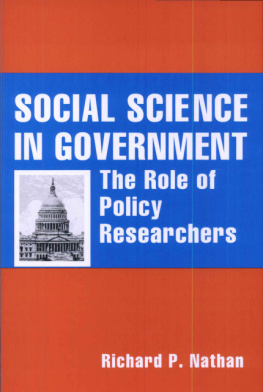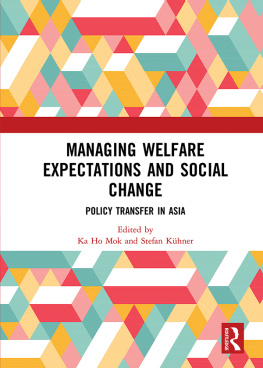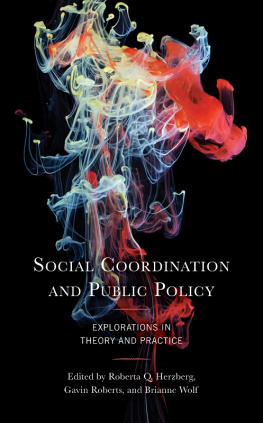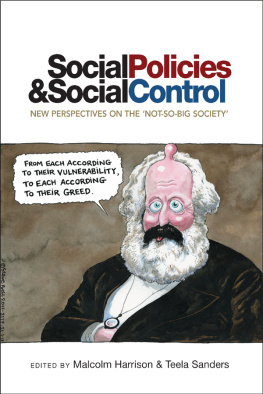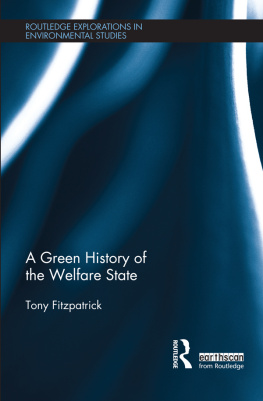Rockefeller Institute Press, Albany, New York 12203-1003
2000 by the Rockefeller Institute Press
All rights reserved. First edition 2000
Printed in the United States of America
The Rockefeller Institute Press
The Nelson A. Rockefeller Institute of Government
411 State Street
Albany, New York 12203-1003
Library of Congress Cataloging-in-Publication Data
Nathan, Richard P.
Social science in government : the role of policy researchers / Richard P. Nathan-New ed.
p. cm.
Includes bibliographical references and index.
ISBN 0-914341-65-0 ISBN 0-914341-66-9 (pbk.)
1. Social sciencesResearchUnited States. 2. Policy sciencesResearchUnited States. 3. United StatesPolitics and government19451989. I. Title.
H62.5.U5 N34 2000
320' .6dc21
99-087567
ISBN: 0-914341-65-0 Cloth
0-914341-66-9 Paper
For Mary
Foreword
M ore than ten years have passed since Basic Books published the first edition of Richard P. Nathans Social Science in Government. In the intervening decade, the author has been involved in many new public policy research projects that offer rich material new case studies to highlight both the pitfalls and possibilities of demonstration and evaluation research. These new cases do not merely pile up examples in support of an old argument. By highlighting the pluses and minuses of this kind of public policy research, they have stimulated a fresh look at Nathans basic argument from beginning to end.
Once the new version of this book was finished, Dick Nathan was faced with a question about next steps and asked me what he should do. 1 said he ought to publish this book with the Rockefeller Institute Press. Many of the case studies described are based on research done at the Institute. More to the point, the books central argument makes the case for the Institutes core mission. Dick agreed, but was unsure about what the process should be. The Institute Presss success depends on its reputation. Manuscripts go through a normal process of anonymous peer reviews, and these reviews can lead to rejection as well as extensive rewriting. There was no way the Press could conduct these peer reviews properly if Nathan were to be the person to solicit reviewers, as he does for other books.
So, for this volume, I acted as publisher during the books early stages. I solicited reviews, passed them on anonymously, and wrote one myself. These were serious comments that led as good reviews will to considerable revisions. The book is better for the work of the reviewers, and I believe the Rockefeller Institute Press is stronger for having adopted this process. The final product speaks for itself.
Michael J. Malbin
Rockefeller Institute and University at Albany, State University of New York
Preface to the New Edition
T his is a new edition of a book I published a decade ago with Basic Books. Since the earlier version of this book is out of print, I decided to revise and reissue it. The ideas presented are important to me, and I have continued to develop and refine them. The new edition reflects this further contemplation. It also contains several additional chapters that update the earlier edition with new case material to bring to life important questions about how social science can be useful and used in American government.
Besides the five new chapters, a number of the original chapters have been updated. This edition also contains a new final chapter on the limits and possibilities of applied social science. The case material used in this book focuses on major public policy issues, highlighting applied social science research in one policy area welfare reform and related employment programs and social services. I hope the book can serve three purposes: as a primer for people interested in how social scientists can help social policymakers learn about what works; as a history of welfare policy research; and as a personal retrospective on a career in applied social science in which learning what works and what doesnt has been a central endeavor.
Many people have influenced the ideas advanced in this book, particularly those who worked on the studies used as case material. One of the main sources of case material is ten field network evaluation studies I conducted with colleagues at three policy research centers the Brookings Institution, the Urban and Regional Research Center of the Woodrow Wilson School at Princeton University, and the Nelson A. Rockefeller Institute of Government in Albany, the public policy research arm of the State University of New York.
The second major source of case material is research by the Manpower Demonstration Research Corporation (MDRC), founded in 1974. MDRC has conducted a large number of social experiments to test new programs designed to deal with the hardest problems of societys most disadvantaged people. I was a member of the board of directors of the Manpower Demonstration Research Corporation from 1974 to 1997. I admire the work done by its extraordinary staff, dedicated to applied public policy research that makes a difference. At the same time, I should make it clear that I did not participate as a researcher in the conduct of MDRC studies. My discussion of lessons drawn from these studies represents my own personal interpretations.
I also have drawn on the work of other public policy researchers, many of whom are friends of long standing, who willingly (and in some cases without realizing it) helped to shape my ideas. Scores of people, a number of them mentioned along the way in this book, have produced books and papers on which parts of this book are based. I also want to thank colleagues who read the manuscript for the earlier edition of this book and provided valuable reactions and suggestions: Orley C. Ashenfelter, Rebecca Blank, Robert F. Cook, Martha A. Derthick, Paul R. Dommel, Eli Ginzberg, David A. Long, Gilbert Y. Steiner, Donald E. Stokes, Aaron Wildavsky, and Michael Wiseman.
Michael Malbin served as publisher of this new edition and provided valuable advice and assistance. Thomas L. Gais and Irene Lurie are co-authors of two of the new chapters in this book on welfare and employment studies. Robert L. Cohen provided editorial assistance. Howard Rolston of the U.S. Department of Health and Human Services, Rebecca Blank, and Burt Barnow read this new manuscript and made valuable suggestions.
The Ford Foundation and the Florence and John Schumann Foundation provided the financial support for the original version of this book, written during a sabbatical year from Princeton University in 1986-1987. Special appreciation for this support is due to Susan Berresford and Shepard Forman of the Ford Foundation and William Mullins of the Schumann Foundation. Martin Kessler, my original editor at Basic Books, was a wise critic and a reservoir of helpful advice; Suzanne L. Wagner at Basic Books served as project editor for the original book. Nan Nash, my secretary at Princeton University, helped me put many versions of the original manuscript into our word processors; Carol Kuhl patiently followed suit at the Rockefeller Institute for this edition. Jonathan Jacobson and John Lago proofread the original manuscript, and John Lago provided research assistance as well. Michael Cooper, director of publications at the Rockefeller Institute, took charge of producing this second edition assisted by Marilyn McCabe. Irene Pavone ably provided proofreading and research assistance for this new edition.

